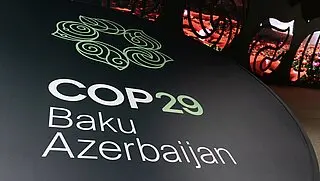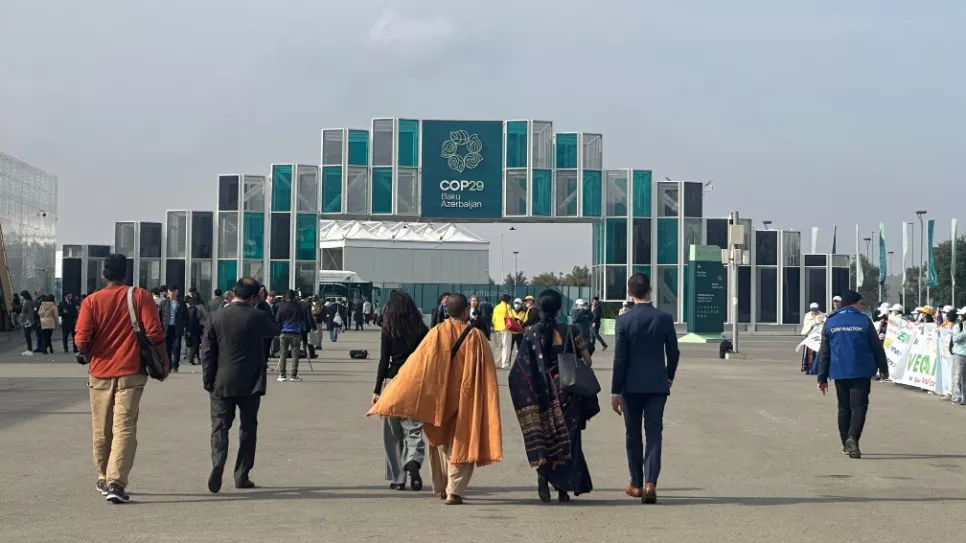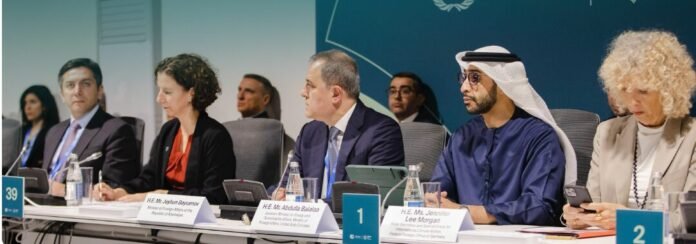Introduction to the Global Matchmaking Platform (GMP)

The Global Matchmaking Platform (GMP) for industrial decarbonization has been officially launched at COP29, a significant milestone spearheaded by the United Nations Industrial Development Organization (UNIDO) in collaboration with the Climate Club. This innovative platform is designed to facilitate connections between various stakeholders, including industries, technology providers, investors, and policymakers, focusing specifically on fostering decarbonization efforts across industrial sectors globally.
The primary aim of the GMP is to act as the first dedicated space that addresses the unique challenges and opportunities associated with reducing carbon emissions in industries, notably in emerging markets and developing economies where such efforts are crucial yet often under-supported. By streamlining collaboration and highlighting potential partnerships, the GMP is set to enhance the deployment of sustainable technologies and practices that can significantly decrease industrial carbon footprints.
The launch of the GMP signifies a critical step in the global fight against climate change, particularly as industrial sectors contribute to a substantial portion of greenhouse gas emissions worldwide. The platform seeks to ensure that emerging markets are not left behind in the transition towards a sustainable industrial future, which is essential for achieving broader climate goals. In acknowledgment of its importance, the initiative has received initial funding from Germany’s Federal Ministry of Economic Cooperation and Climate Action, underscoring the commitment to fostering climate-resilient economic development.
Through the GMP, stakeholders gain access to a wealth of resources, networking opportunities, and best practices that can drive forward innovative decarbonization strategies. By creating an inclusive ecosystem for collaboration, the platform aims to unlock financing opportunities and technological advancements that are key to achieving significant progress in industrial decarbonization on a global scale.
Connecting Country Needs with Global Resources

The Global Matchmaking Platform (GMP) for Industrial Decarbonization, launched at COP29, serves as a pivotal conduit that aligns the specific needs of countries with a diverse array of technical and financial resources available globally. This initiative is designed to facilitate a structured and efficient methodology for nations striving to implement sustainability measures, particularly in sectors that are energy-intensive and have traditionally posed significant challenges to emissions reduction.
Countries looking to benefit from this platform can easily submit applications for various projects and programs tailored to their unique contexts. This submission process is streamlined to ensure that the criteria for participation are accessible, enabling countries at various stages of their decarbonization journey to engage effectively. Upon receipt of applications, the GMP evaluates them to ascertain compatibility with available resources and the broader objectives of global decarbonization efforts.
Moreover, the GMP welcomes expressions of interest from both institutional stakeholders and various donor entities. This inclusive approach not only amplifies the pool of resources but also encourages collaborative efforts between countries and financial backers committed to fostering industrial decarbonization. The platform emphasizes the importance of tailored support, whereby the specific challenges faced by a country can be addressed through customized solutions rather than a one-size-fits-all approach.
The matchmaking process is critical in ensuring that the right resources are allocated to the right projects. By focusing on compatibility between the capabilities offered by external entities and the needs articulated by countries, the GMP creates a synergistic environment that maximizes the potential for impactful change. As nations engage with the platform, they are poised to receive not only guidance but also the essential support required to effectively reduce emissions in their energy-intensive industries, paving the way for a sustainable future.
Collaboration Among Delivery Partners
The Global Matchmaking Platform (GMP) for industrial decarbonization has emerged as a pivotal initiative at COP29, bolstered by a network of esteemed delivery partners. Key organizations such as GIZ and the World Bank play instrumental roles in supporting this initiative, demonstrating a commitment to fostering sustainable practices across various sectors. These partners collaborate with governments to develop crucial policies that facilitate decarbonization efforts, ensuring that countries are equipped with the necessary frameworks to transition towards low-carbon economies.
In addition to policy development, the platform emphasizes technology transfer, wherein cutting-edge innovations and solutions are shared among participating nations. This exchange not only accelerates the implementation of sustainable technologies but also helps mitigate the risks associated with industrial emissions. By enabling knowledge sharing and the adoption of best practices, delivery partners are essential in creating an ecosystem conducive to decarbonization.
Investment facilitation is another critical area where these organizations contribute significantly. By leveraging their networks and resources, they assist countries in attracting climate investment funds that are essential for the successful execution of decarbonization projects. This financial backing enhances the initiatives’ viability, making it possible to launch ambitious pilot projects globally. Countries such as Germany, Brazil, and India are currently undertaking such pilots, exploring various approaches tailored to their unique challenges and opportunities in the realm of industrial decarbonization.
The collaboration among governments, international organizations, and the private sector is indispensable for driving the decarbonization agenda. It creates a platform for dialogue, resource sharing, and collective action that is vital for achieving long-term sustainability goals. Through these cooperative efforts, the GMP positions itself as a beacon of hope in the global quest to tackle climate change and foster a resilient industrial ecosystem.
Statements from Leaders and Future Directions

During the recent launch of the Global Matchmaking Platform (GMP) for Industrial Decarbonization at COP29, influential leaders delivered pivotal statements emphasizing the platform’s transformative role in addressing climate change. H.E. Mukhtar Babayev, the Minister of Ecology and Natural Resources of Azerbaijan, highlighted the GMP’s potential to facilitate collaborative efforts between nations and industries. He asserted that the platform serves as a crucial mechanism for sharing knowledge, resources, and technological advancements necessary for transitioning to a low-carbon economy. Moreover, Babayev stressed the importance of fostering a supportive framework for emerging economies, which often face greater challenges in decarbonization due to limited resources and infrastructure.
In a similar vein, Farhina Ahmed, the Secretary of the Ministry of Environment, Forest and Climate Change of Bangladesh, underscored the significance of partnerships in achieving impactful climate action. Her remarks reflected a commitment to enhancing donor engagement within the GMP, which is vital for mobilizing financial and technical assistance to developing countries. Ahmed emphasized that global collaboration is essential in scaling up decarbonization projects and ensuring that all nations, particularly those with fewer resources, are equipped to meet their climate commitments.
The GMP aims to create a robust network of partners, fostering connections between governments, private sectors, and financial institutions dedicated to industrial decarbonization. As highlighted by various leaders, future directions for the platform include developing tailored strategies for each participating nation, ensuring that their unique challenges and opportunities are addressed comprehensively. By enhancing cooperation and aligning priorities, the GMP is set to play a key role in advancing global climate ambitions, ensuring that no country is left behind in the pursuit of a sustainable future.


